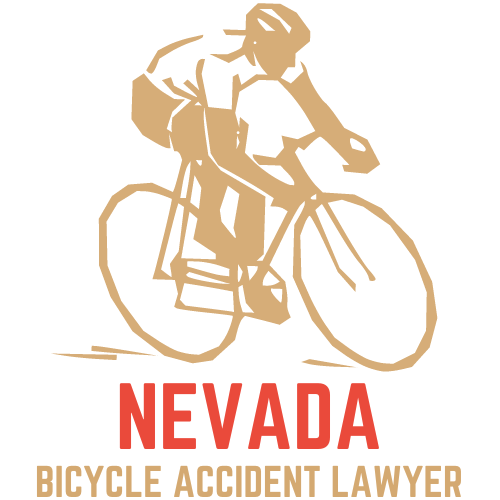What Is The Insurance Company’s Role In Bicycle Accidents Navigating Claims And Legal Assistance In Nevada
When you’re involved in a bicycle accident, the aftermath can often seem as chaotic and confusing as the event itself. Understanding the role of insurance companies in these situations is crucial.
For starters, after sustaining an injury from a bicycle accident, it’s the insurance company’s responsibility to assess claims and provide compensation based on the policy of the at-fault driver.
Your actions immediately following the incident are vital: seeking medical attention, reporting the accident to both your and the at-fault party’s insurance providers, and collecting evidence are all critical steps to strengthen your position.
Determining who is responsible for your injuries after being hit by a car while on a bike involves establishing fault. This process often hinges on evidence from the scene, the accounts of any witnesses, and the legal requirements for road users.
If the driver’s negligence resulted in the accident, their insurance should cover your damages. However, bear in mind that an insurance company can deny your claim if it believes the evidence does not support your account or if they contest liability.
In the event of disputes or denials from insurance companies, a personal injury lawyer, especially one well-versed in Nevada’s specific traffic laws and insurance regulations, becomes an indispensable ally.
They can help navigate through the intricate process of claiming compensation, dealing with insurance adjusters, and ensuring that your rights are protected throughout.
Engaging a lawyer early on can often lead to a more favorable outcome, as they can advocate on your behalf and pursue the necessary legal action to secure the compensation you deserve.
The Role of Insurance Companies After a Bicycle Accident
After a bicycle accident, insurance companies come into play to manage claims and compensation tied to the incident. Your interactions with them can significantly influence your financial recovery.
Assessment of Claims
Insurance companies commence by evaluating your claim to establish the accident’s circumstances and liability.
It’s your responsibility to file a claim and include evidence of both the accident and your injuries. This typically involves submitting the accident report, medical records, and any additional documentation that supports your claim.
Coverage Determination
Once your claim is filed, insurers determine the coverage details.
If you’ve been hit by a car, the driver’s auto insurance may cover your medical expenses and damages under their liability insurance. Your health insurance may also cover some of your medical costs.
Insurers will review policy terms to decide what expenses are covered and the compensation amount you’re entitled to receive.
Dispute Resolution
There are times when disputes arise, such as coverage disagreements or liability issues.
If the insurance company denies your claim or presents a counteroffer that’s insufficient, dispute resolution becomes necessary. This can take the form of negotiations, mediation, or, if needed, litigation.
A personal injury lawyer can represent your interests, aiming to secure fair compensation and guiding you through the complexities of insurance claims in Nevada.
Immediate Steps Following a Bicycle Accident
In the immediate aftermath of a bicycle accident, your health, safety, and the protection of your legal rights are paramount. Here is what you need to prioritize right away.
Medical Attention
Your first concern should be to assess your physical condition and seek medical attention.
Even if you don’t think you’ve been seriously injured, it is essential to get a medical evaluation as some injuries may not be immediately apparent. Documentation from healthcare professionals will serve as critical evidence should you need to pursue an insurance claim.
- Call 911 if there are any signs of serious injury or if you are in doubt.
- Visit a doctor for a full check-up even with minor symptoms.
Gathering Evidence
Once you are safe and able, collect evidence from the scene. This evidence can significantly influence the outcome of any insurance claims and legal proceedings.
- Photographs: Take well-lit pictures of your injuries, the damage to your bicycle, the car involved, and the overall accident scene.
- Contact Information: Note down the details of all involved parties and witnesses, including names, addresses, and phone numbers.
- Police Report: Always report the accident to the police and obtain a copy of the accident report for your records.
Legal Considerations
Understanding your rights and responsibilities after a bicycle accident can affect your insurance claims and potential compensation.
- Insurance Notification: Inform your insurance company about the accident but refrain from making detailed statements or accepting fault until you speak with an attorney.
- Consult an Attorney: An attorney specialized in bicycle accidents in Nevada can provide legal guidance, help you navigate the complexities of insurance claims, and represent your interests.

Determining Liability for Bicycle Accident Injuries
After a bicycle accident injury, determining who is responsible is critical for compensation. Liability hinges on the establishment of negligence and adherence to local traffic laws.
Negligence and Fault
Negligence is a legal concept implying that someone failed to act with reasonable care, resulting in injury to another. To establish negligence in a bicycle accident, you must demonstrate:
- Duty of Care: The other party had a responsibility to act safely to avoid harming others.
- Breach of Duty: The party failed to meet this responsibility.
- Causation: This failure caused the accident.
- Damages: You sustained injuries as a result of the accident.
For example, if you are hit by a car, the driver may be liable if they were speeding, ran a red light, or were otherwise negligent. Evidence such as traffic camera footage, witness statements, and police reports can be crucial in proving fault.
Comparative Fault Rules
Under comparative fault rules, which many states, including Nevada, use, your compensation may be reduced if you are partially at fault. The system works by assigning a percentage of fault to each party involved and reducing compensation accordingly.
Consider:
- If you are found to be 20% at fault for not using a bike light at night, and your damages total $100,000, your compensation would be reduced to $80,000.
- Conversely, if the other party is 80% at fault, they would be responsible for covering that percentage of your damages.
Understanding and navigating these legal concepts can be complex.
If you find yourself in a bicycle accident, it is advisable to consult with a personal injury lawyer who can clarify these rules and work with you to pursue just compensation.
A lawyer can also communicate with insurance companies on your behalf, especially if there is an attempt to deny your claim unfairly.


